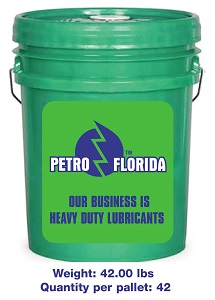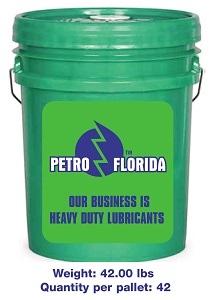Industrial & Specialty Lubes
Showing all 43 results
-

BAR AND CHAIN LUBRICANT
$1.00 – $4.00 -

BEARING OIL
$1.00 – $4.00 -

BRAND HEAT TRANSFER OIL # 320
$1.00 – $4.00 -

BRONZE OIL
$1.00 – $4.00 -

BUFFER OIL
$1.00 – $4.00 -

COMPACTOR OIL
$1.00 – $4.00 -

COMPRESSOR OIL SYNTHETIC: ISO 32, 46, 68, 100, 150
$1.00 – $4.00 -

COMPRESSOR OILS: ISO 32, 46, 68, 150
$1.00 – $4.00 -

DOOR CHECK OIL
$1.00 – $4.00 -

ELEVATOR OIL FRICTION RELIEF
$1.00 – $4.00 -

ESCALATOR OIL
$1.00 – $4.00 -

FORM RELEASE OIL
$1.00 – $4.00 -

HEAT TRANSFER OIL
$1.00 – $4.00 -

HONING OIL
$1.00 – $4.00 -

INACTIVE SULFUR CUTTING AND GRINDING FLUID / OIL
$1.00 – $4.00 -

LEMON OIL
$1.00 – $4.00 -

LILY WHITE OIL
$1.00 – $4.00 -

LVS SPINDLE OIL
$1.00 – $4.00 -

MINERAL SPIRITS
$1.00 – $4.00 -

NEUTRAL OIL
$1.00 – $4.00 -

NO-SMOKE 777 DIESEL ADDITIVE
$1.00 – $4.00 -

NON-DETERGENT NAPHTHENIC OIL 50w
$1.00 – $4.00 -

OIL DRY 40 LB. BAG
$1.00 – $4.00 -

PETROFLO Rock Drill Oil
$0.10 – $0.20 -

petroVolt Electrical Insulating Oil
$1.00 – $4.00 -

POWER STEERING FLUID
$1.00 – $4.00 -

Premium industrial bearing and circulating oil
$1.00 – $4.00 -

Premium Turbine and multi-purpose R&O inhibited circulating oils
$1.00 – $3.00 -

QUENCHING OIL 201
$1.00 – $4.00 -

RAIL OIL
$1.00 – $4.00 -

REFRIGERATION OIL
$1.00 – $4.00 -

SEWING MACHINE OIL
$1.00 – $4.00 -

SLIDERITE OIL
$1.00 – $4.00 -

SOLUBLE CUTTING OIL
$1.00 – $4.00 -

SULPHURATED CUTTING OIL
$1.00 – $4.00 -

Synthetic Bearing and Circulation Oil
$1.00 – $4.00 -

SYNTHETIC COMPRESSOR OILS
$1.00 – $4.00 -

VACUUM PUMP OIL
$1.00 – $4.00 -

Vanishing Oil
$1.00 – $4.00 -

WAYLUBE
$1.00 – $4.00 -

WET LUBE 200
$1.00 – $4.00 -

WHITE MINERAL OIL
$1.00 – $4.00 -

WIRE ROPE LUBE
$1.00 – $4.00
